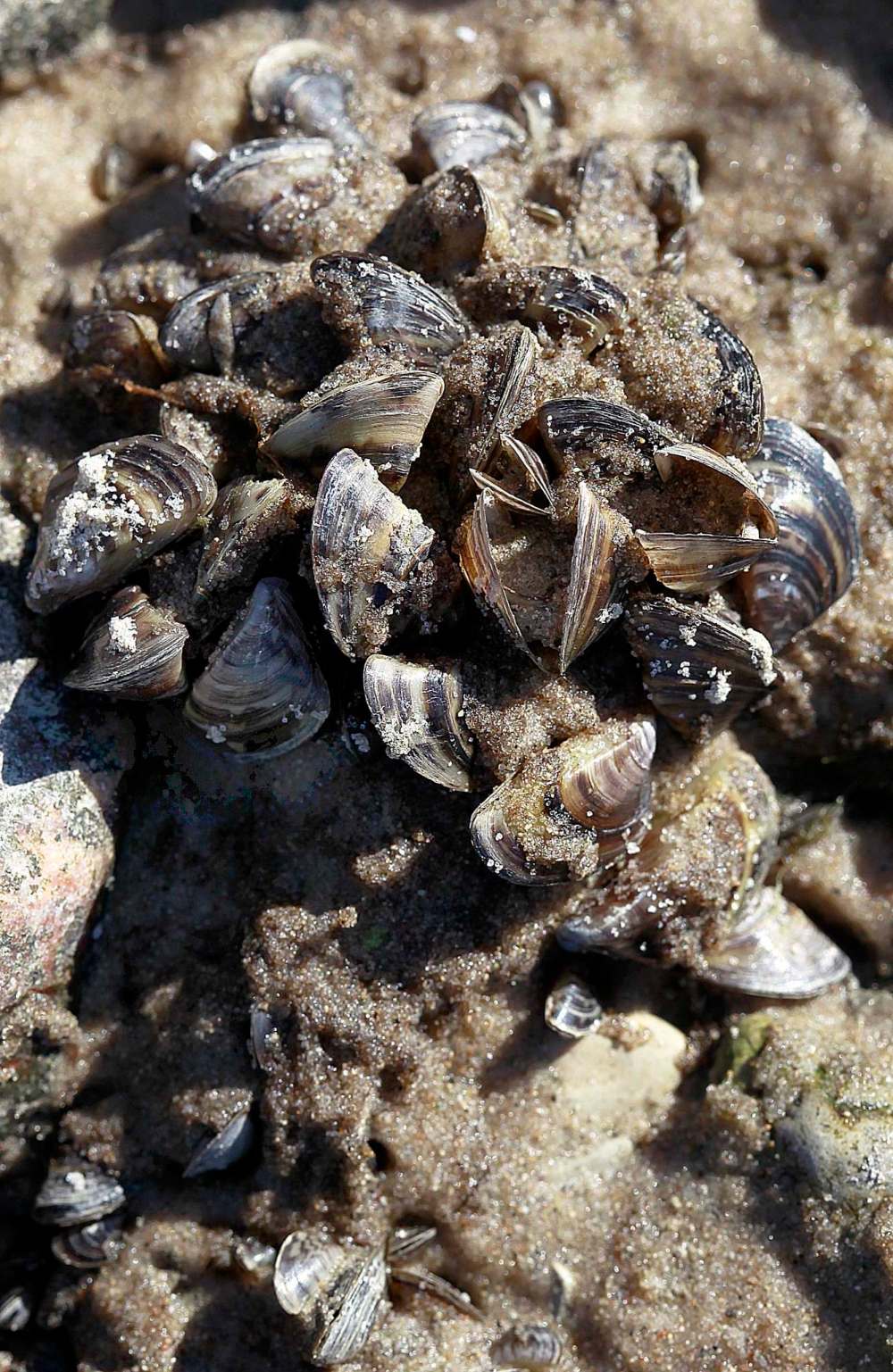Winnipeg moves to protect water infrastructure from invasive mussel
Advertisement
Read this article for free:
or
Already have an account? Log in here »
To continue reading, please subscribe:
Monthly Digital Subscription
$0 for the first 4 weeks*
- Enjoy unlimited reading on winnipegfreepress.com
- Read the E-Edition, our digital replica newspaper
- Access News Break, our award-winning app
- Play interactive puzzles
*No charge for 4 weeks then price increases to the regular rate of $19.00 plus GST every four weeks. Offer available to new and qualified returning subscribers only. Cancel any time.
Monthly Digital Subscription
$4.75/week*
- Enjoy unlimited reading on winnipegfreepress.com
- Read the E-Edition, our digital replica newspaper
- Access News Break, our award-winning app
- Play interactive puzzles
*Billed as $19 plus GST every four weeks. Cancel any time.
To continue reading, please subscribe:
Add Free Press access to your Brandon Sun subscription for only an additional
$1 for the first 4 weeks*
*Your next subscription payment will increase by $1.00 and you will be charged $16.99 plus GST for four weeks. After four weeks, your payment will increase to $23.99 plus GST every four weeks.
Read unlimited articles for free today:
or
Already have an account? Log in here »
Hey there, time traveller!
This article was published 18/08/2020 (1926 days ago), so information in it may no longer be current.
The City of Winnipeg is hiring help to control invasive mussels, due to the risk the molluscs could interfere with its drinking water supply.
A request for proposal calls for a consultant to create a detailed design for an invasive mussel control system at the Shoal Lake aqueduct intake facility in Ontario, as well as a preliminary design to protect Winnipeg’s Deacon reservoirs.
“Zebra and quagga mussels have been introduced into North American waterways and are invasive mussels known for their bio-fouling capabilities (which can damage pipes)… As such, the likelihood of their introduction into Shoal Lake has increased,” the RFP states.

Tim Shanks, manager of water services, said city officials have not yet detected these invasive species at Shoal Lake. But Shanks said Ontario officials did once trap a larval-stage zebra mussel at the lake and it’s “likely” the invasive species will wind up there.
Shanks said the city has a chlorination system that could control the invasive species, but it has been in place since the 1990s and should be updated to ensure the best and most cost-effective strategy is in place.
“The existing system is dated and if we had to run it all the time to protect against zebra mussels, we would want to improve it… The intent is to find some efficiency improvements and some savings, to just make sure we’re doing it the best way possible,” said Shanks.
While invasive mussels shouldn’t affect water quality, they could significantly damage the infrastructure that ensures a steady water supply, if left unaddressed, he said.
“They physically attach to the inside of pipes and to the walls of facilities and gates and they clog things up… (And) the water supply to the city is drinking water, it’s fire protection, it’s everything. So we have to prepare.”
Shanks said the consultant’s strategy would guide future construction on a new or updated system. It would also require a further city budget approval and likely won’t be built until at least 2023, he added.
For the Shoal Lake intake, the consultant is required to compare at least two potential chlorine dosing options for invasive mussel control, including cost estimates and how long each might last.
Coun. Brian Mayes, chairman of council’s water and waste committee, said the preparations are an important way to protect an essential service.
“It’s a core responsibility of the city, by any definition. We need a secure water supply,” said Mayes (St. Vital).
The deadline for proposals is 12 p.m. Oct. 8, while the city expects to award the contract by Jan. 6, 2021.
joyanne.pursaga@freepress.mb.ca
Twitter: @joyanne_pursaga

Joyanne is city hall reporter for the Winnipeg Free Press. A reporter since 2004, she began covering politics exclusively in 2012, writing on city hall and the Manitoba Legislature for the Winnipeg Sun before joining the Free Press in early 2020. Read more about Joyanne.
Every piece of reporting Joyanne produces is reviewed by an editing team before it is posted online or published in print — part of the Free Press‘s tradition, since 1872, of producing reliable independent journalism. Read more about Free Press’s history and mandate, and learn how our newsroom operates.
Our newsroom depends on a growing audience of readers to power our journalism. If you are not a paid reader, please consider becoming a subscriber.
Our newsroom depends on its audience of readers to power our journalism. Thank you for your support.

